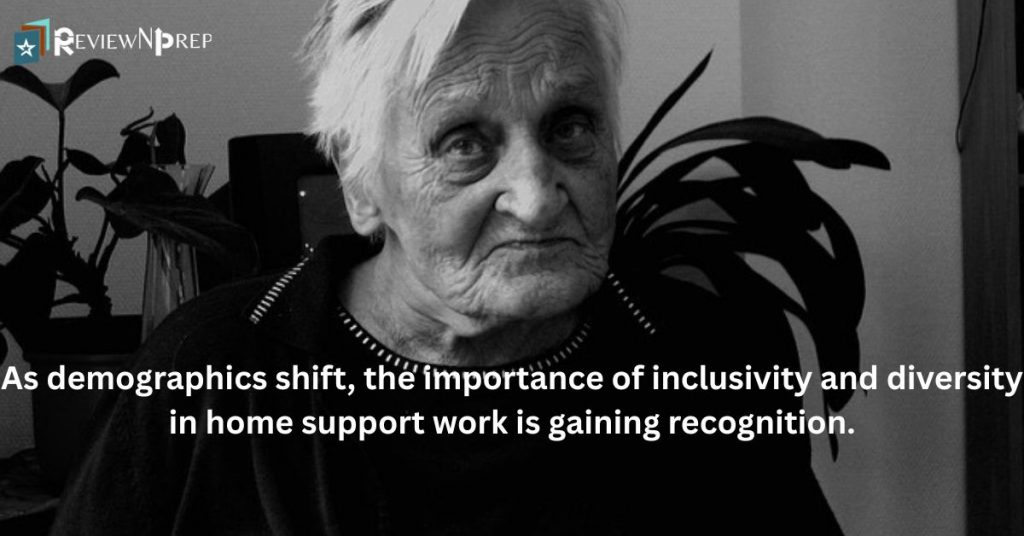The realm of home support work is undergoing a significant transformation driven by technological advancements and shifting client needs. As families increasingly opt for personalized home care solutions over institutional settings, the demand for professional support workers is surging. This change underlines the industry’s growth potential and emphasizes the necessity for support workers to adapt to new models of care delivery, ensuring they are equipped to meet the diverse needs of clients.
By embracing these changes, support professionals can enhance their effectiveness, foster meaningful relationships with clients, and contribute to a more dignified quality of life for those who rely on their services.
The Role of Technology in Home Support
Technology plays a pivotal role in shaping the future of home support work, particularly through telehealth, smart home devices, and health-monitoring applications. Telehealth allows support workers to consult with healthcare professionals remotely, ensuring that clients receive timely medical advice without the need for travel. This capability proves particularly beneficial for individuals with mobility challenges, enabling them to access vital services more efficiently.
Smart home devices significantly enhance an individual’s safety and independence. Fall detection systems can alert caregivers immediately, ensuring prompt assistance when needed, thus reducing emergency incidents.
Health-monitoring applications empower clients to track their health metrics conveniently from home. By using wearables or smartphone applications, individuals can record vital signs, medication schedules, and other health indicators. Such technologies enable support workers to stay informed about their clients’ conditions, allowing them to make proactive adjustments to care plans.
Shifting Perspectives on Care Models
As society evolves, so do perceptions regarding care models. The traditional approach to home support often involved a rigid structure focusing solely on medical needs. Contemporary ideals emphasize a client-centered approach, valuing emotional, social, and physical well-being. Support workers must adapt to this broader understanding of care, ensuring they engage with clients holistically. Activities that promote mental and emotional health are now recognized as integral to overall care, leading to frameworks that encompass recreational therapies, companionship, and community engagement.
The emphasis on understanding support shifts highlights the importance of fostering connections between clients and support workers. Building rapport creates a sense of trust and allows for more personalized care tailored to specific preferences and lifestyles. Training programs for support workers increasingly incorporate soft skills development alongside technical caregiving skills, equipping them to navigate these nuances adeptly.
The Rise of Flexible Scheduling and Buddy Shifts
One of the notable trends in home support work is the growing popularity of flexible scheduling, particularly through buddy shifts. This innovative approach allows two support workers to collaboratively cover a client’s needs, providing a higher degree of flexibility than traditional single-carer models. With buddy shifts, workers can alternate schedules to ensure consistent coverage, enabling them to attend to the immediate physical needs of clients and their social needs.
This model encourages camaraderie among support workers while reducing burnout since they can share responsibilities and shift duties. Thus, both workers and their clients benefit from improved continuity of care. Incorporating buddy shifts into the home support framework is a significant development, particularly for clients with complex care needs. It ensures that someone is always available to respond to emergencies and offer companionship to individuals who may feel isolated.
The Importance of Professional Development
As the landscape of home support work evolves, the focus on professional development becomes paramount. Ongoing training for support workers ensures they remain current with best practices, policies, and technological advancements. Organizations in the field are increasingly investing in comprehensive training programs that provide foundational caregiving knowledge and cover emerging technologies relevant to home support.
Such programs prioritize practical skills readily applicable in real-world scenarios, ensuring workers feel confident and competent in their roles. Specialized training in areas such as dementia care and palliative support is gaining traction, mirroring changes in client demographics and needs. As the population ages, support workers must be equipped to tackle these challenges effectively. Enhanced training emphasizes the importance of self-care for workers, recognizing the emotional toll often associated with caregiving roles.
The Role of Policy and Regulation
Regulatory frameworks significantly influence the evolution of home support work. Policymakers are increasingly recognizing the importance of home-based care as a viable alternative to institutional settings. Funding initiatives aimed at bolstering home care services are becoming more prevalent, providing agencies with the resources necessary to expand services and enhance workforce training.
Regulations emphasizing caregiver qualifications and client safety standards ensure that individuals receive adequate care while fostering a secure environment for workers. This evolving regulatory landscape places increasing emphasis on quality assurance and accountability measures. Agencies must adopt best practices and maintain high standards while providing excellent care.
Policymakers are beginning to recognize the importance of labor rights for support workers, leading to advocacy for fair wages, benefits, and working conditions. As regulatory frameworks continue to evolve, stakeholders across the home support industry will have to adapt to ensure compliance while maintaining quality service delivery.

The Cultural Shift Toward Inclusivity and Diversity
As demographics shift, the importance of inclusivity and diversity in home support work is gaining recognition. Care teams now mirror the diverse backgrounds of the communities they serve, promoting cultural competence among support workers and enhancing client comfort and satisfaction. Understanding cultural nuances enhances communication and rapport building, creating stronger relationships between support workers and clients.
Training programs increasingly focus on developing cultural competence, which is crucial for providing personalized care that respects clients’ beliefs and practices. This cultural shift fosters an inclusive environment where diverse support workers feel valued and supported. It empowers them to contribute fully to service delivery while addressing potential biases that may exist within the system.
Conclusion
Support workers stand at the forefront of this shift, demonstrating resilience and adaptability in meeting the challenges posed by an increasingly complex landscape. By embracing these changes, they will enhance their practice and improve the lives of those they serve, paving the way for a more compassionate and informed approach to home support.
Further Reading:

